Saturday Feb 21, 2026
Saturday Feb 21, 2026
Wednesday, 17 March 2021 00:03 - - {{hitsCtrl.values.hits}}
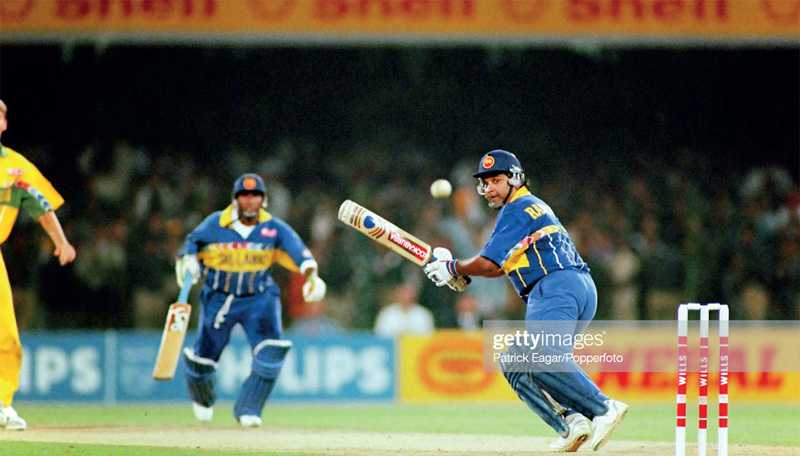
The defining moment in Sri Lanka’s cricket history – skipper Arjuna Ranatunga hitting the winning runs in the World Cup final against Australia at Gaddafi Stadium, Lahore on 17 March 1996
By Sa’adi Thawfeeq
Today (17 March) marks the 25th anniversary of Sri Lanka’s solitary Cricket World Cup (50-over) victory and it is indeed a day to rejoice that the 14 players who brought honour and glory to our country are still with us, some of them abroad and others in Sri Lanka playing their part in giving back to the game that had made them heroes and celebrities overnight.
Sri Lanka weren’t destined to win the World Cup but they did. Why we say that is when you take stock of all the details that had taken before the World Cup, no one would have placed his money on the team to win.
The Cricket Board had no more than $ 5,000 in its bank account; the trauma that the team had undergone in Australia would have simply drained them off their reserves. Their key spinner Muttiah Muralitharan was called for throwing and others were accused of ball-tampering. The players were often embarrassed by their hardship in comparison to other international cricketers and, on top of it all, the nation was embroiled in the north-eastern war that stopped teams like Australia and West Indies from travelling to Sri Lanka to play their World Cup matches. Considering the circumstances it seemed ludicrous for Sri Lanka to have won a World Cup. But they did.
To roll back the years it was the foresight of the then President of the Board of Control for Cricket in Sri Lanka (then known as BCCSL) Ana Punchihewa that laid the foundation for this historic triumph.
Punchihewa was voted as President of the BCCSL at the elections held in February 1995, four months after the position was left vacant following the assassination of Gamini Dissanayake. He took over at a time when cricket lacked the appeal and success it has since achieved.
One of Punchihewa’s main ambitions was to make Sri Lanka the best cricket playing nation in the world by 2000 and to do that they laid out a corporate plan.
“There were about five of us including Arjuna (Ranatunga), Aravinda (de Silva), Dav Whatmore, Anura Tennekoon and Ranjith Fernando, the plan was done in September 1995. I can’t remember whether winning the World Cup was one of them but we might have put it there. Our goal was to become the best cricketing nation in Tests and ODIs,” recalled Punchihewa.
“I said to the team ‘I don’t know much about cricket but more about management and administration’ and I left them to do what they thought was best and anything they needed I would provide them. One person was Anura Tennekoon, he was the Secretary at that time of the Board but he resigned before the end of his term and he was not there when we won the World Cup.”
The road to the World Cup plans took place gradually soon after Whatmore was installed as coach on 1 June 1995 and Alex Kountouris as physio on a two-year contract.
The first nine months after Whatmore took charge Sri Lanka cricket hit the dizzy heights. Sri Lanka started to show signs of consistency in their cricket, something that they had often lacked. They quietly began to believe in themselves that they could win and win quite convincingly at that.
In Whatmore’s first assignment as coach Sri Lanka stunned Pakistan by winning both the Test and ODI series, the first time a country had achieved such a ‘double’ in Pakistan since 1980-’81. They followed this up by winning their first championship in Sharjah beating West Indies in the final to take the Singer Champions Trophy.
The controversial tour of Australia saw Sri Lanka qualify for the World Series Cup finals for the first time. And what the team underwent during the Australian tour saw boys turn into men. The startling turnaround that came about was witnessed two months later at the Gaddafi Stadium in Lahore when Sri Lanka took all the frustrations and anger they had built during the Australian tour by defeating Australia in the final by seven wickets. Revenge could not have been any sweeter.
The key figures in Sri Lanka’s World Cup win according to Punchihewa: “Arjuna the captain, the supporting staff Duleep Mendis (manager and chief selector), Dav Whatmore (coach) and Alex Kountouris (physio) were the people who were there. That was the size of the support staff we had not like now and of course, the team. Other than that, the Cricket Board Committee, they gave me their whole-hearted support.”
“On the day we won the Cup, Arjuna (Ranatunga) receiving the World Cup from Pakistan Prime Minister Benazir Bhutto and Arjuna hitting the winning runs, those are the two most memorable moments that I remember that day and most of the people in Sri Lanka also remember,” recalled Punchihewa.
“It took a little bit of time to realise that it was really happening and the significance of that moment, then tears came to my eyes that ‘we did it, the boys did it,’ that I had played a part in it, a little bit whatever to make it happen, the whole country was very proud of the moment to this day.”
Winning the World Cup no doubt brought Whatmore into the limelight as a cricket coach and helped him become famous.
“I don’t know whether I could reproduce what happened in Sri Lanka. It’s been wonderful, unprecedented. There has been wonderful individual efforts from time to time which really made me feel happy for them, to see the reaction on their faces, the happiness and all that. Everyone in the team has made a substantial contribution. Everyone has stood up when the going got tough. To single out anyone who carries that team is not correct,” said Whatmore in an interview before he resigned as coach.
“With such a talented group of players you would not get the same performances with a lousy coach. But whether I have specifically contributed towards achieving the result, I don’t know. I can’t quantify to what degree I have contributed towards the team’s success.”
Two weeks after winning the World Cup, Punchihewa was thrown out as President of the Cricket Board which one could describe as one of the most shocking reversals in Sri Lanka cricket’s election history and perhaps the world.
“That was the saddest day of my life. They threw away the five-year corporate plan. Never in my life did I dream I would lose. I lost because the votes were brought. I had another year and I could have pushed through what was in the plan and hopefully what happened later would not have happened. Sri Lanka cricket would have been better off, I don’t know,” said Punchihewa.
“Those things happen for the best because when I look back there was no money then. Money only started to come after the World Cup and no one really interfered much. Interference and all that came after the money and I would have found it very difficult to do my job. Everything I built up would have come to naught with people and the Government interfering.”
That happened to be the turning point for the downfall of cricket administration in this country for which we are suffering today.
(The writer covered the 1996 Cricket World Cup for the Daily News and Sunday Observer.)
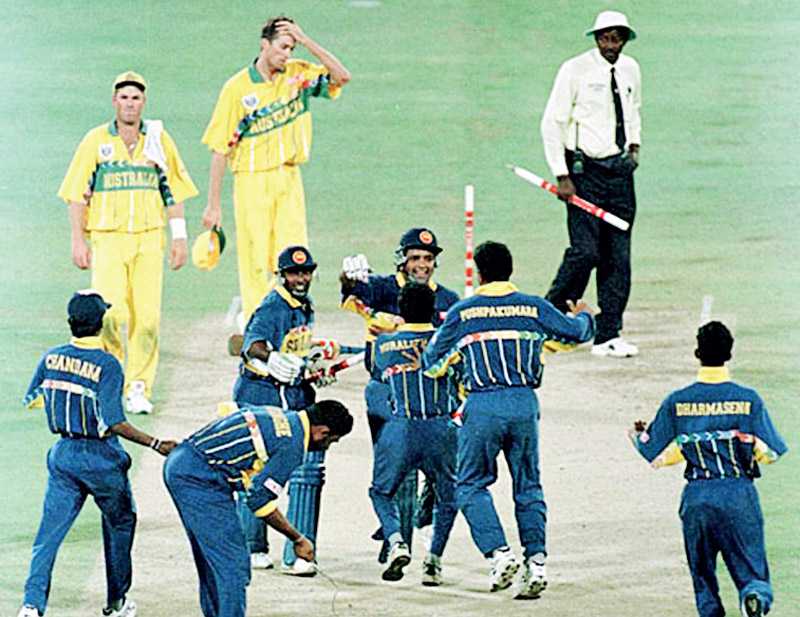
It’s all over – Sri Lankan players celebrate their World Cup victory
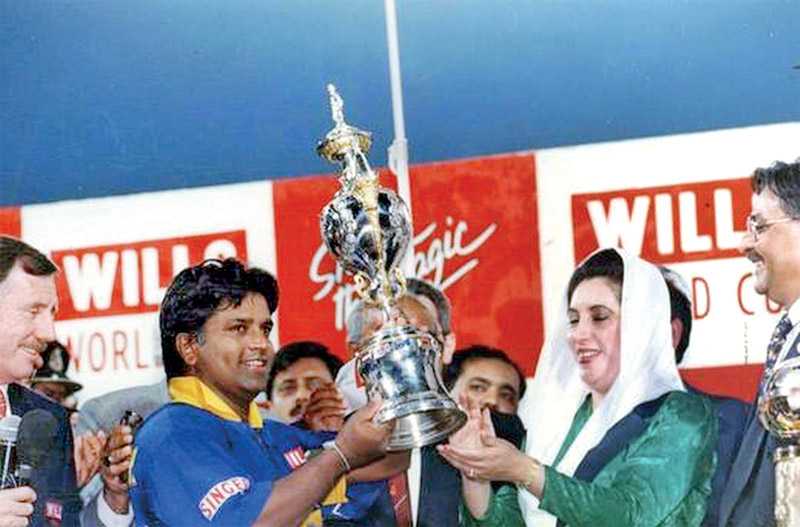
The crowning moment Arjuna Ranatunga receives the most prized possession the Wills World Cup from Pakistan Prime Minister Benazir Bhutto
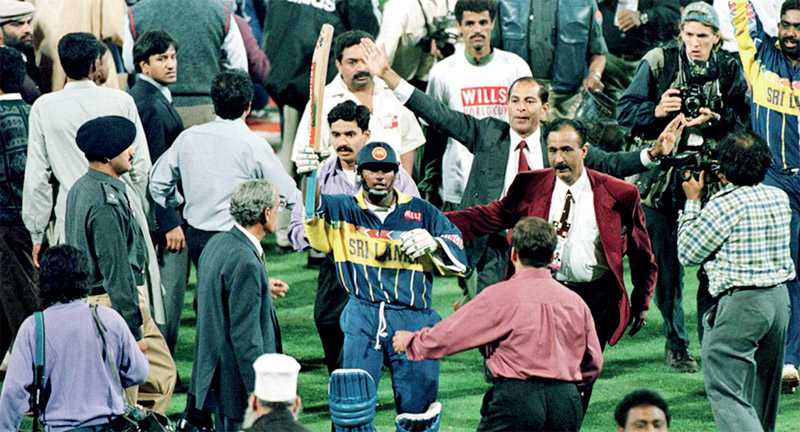
The hero of the final Aravinda de Silva returns to a thunderous ovation after scoring a match-winning century
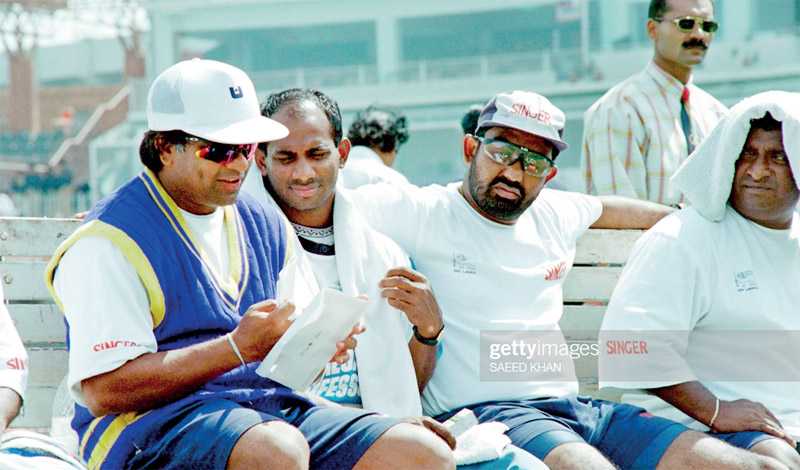
Team strategy before the final (from left): Arjuna Ranatunga, Sanath Jayasuriya, Asanka Gurusinha and Manager Duleep Mendis
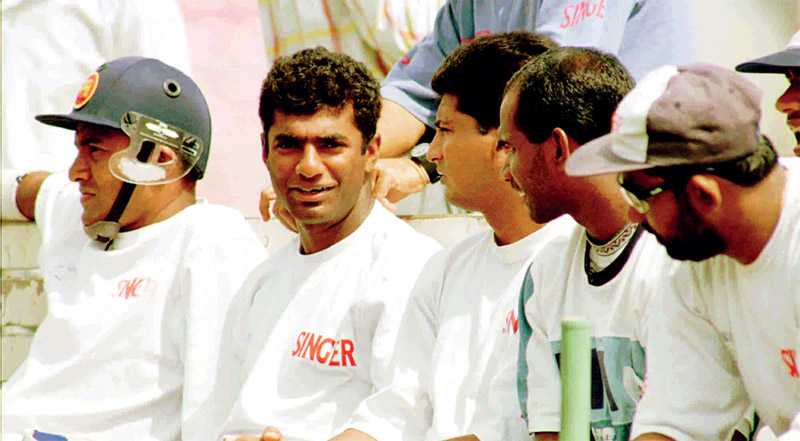
Sri Lanka cricketers take a break during practice ahead of the final at Lahore (from left): Hashan Tillakaratne, Muttiah Muralitharan, Roshan Mahanama, Sanath Jayasuriya and Asanka Gurusinha
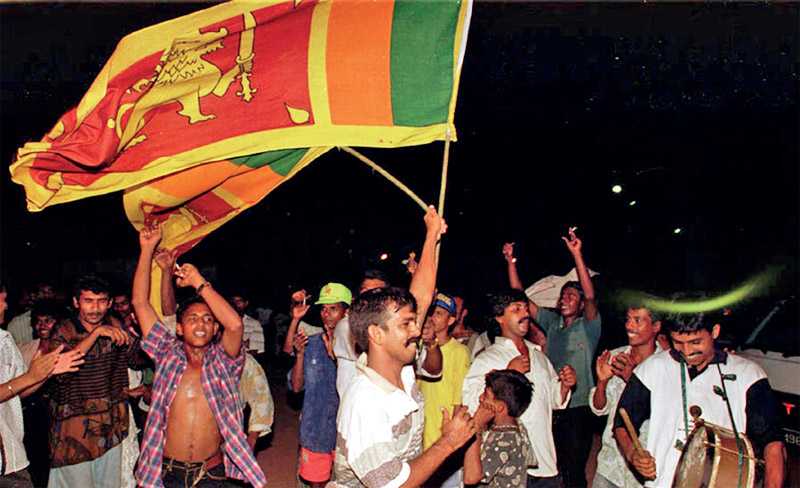
Sri Lankan cricket fans celebrate the win in Colombo
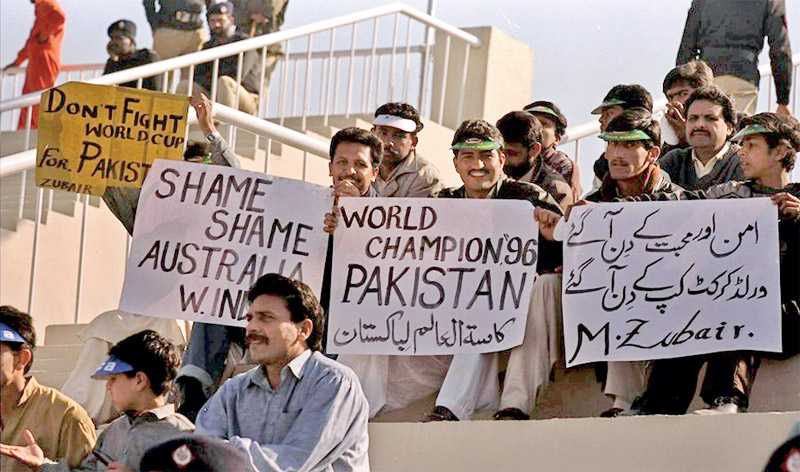
Pakistani fans disapprove of Australia and West Indies’ decision not to play in Sri Lanka
